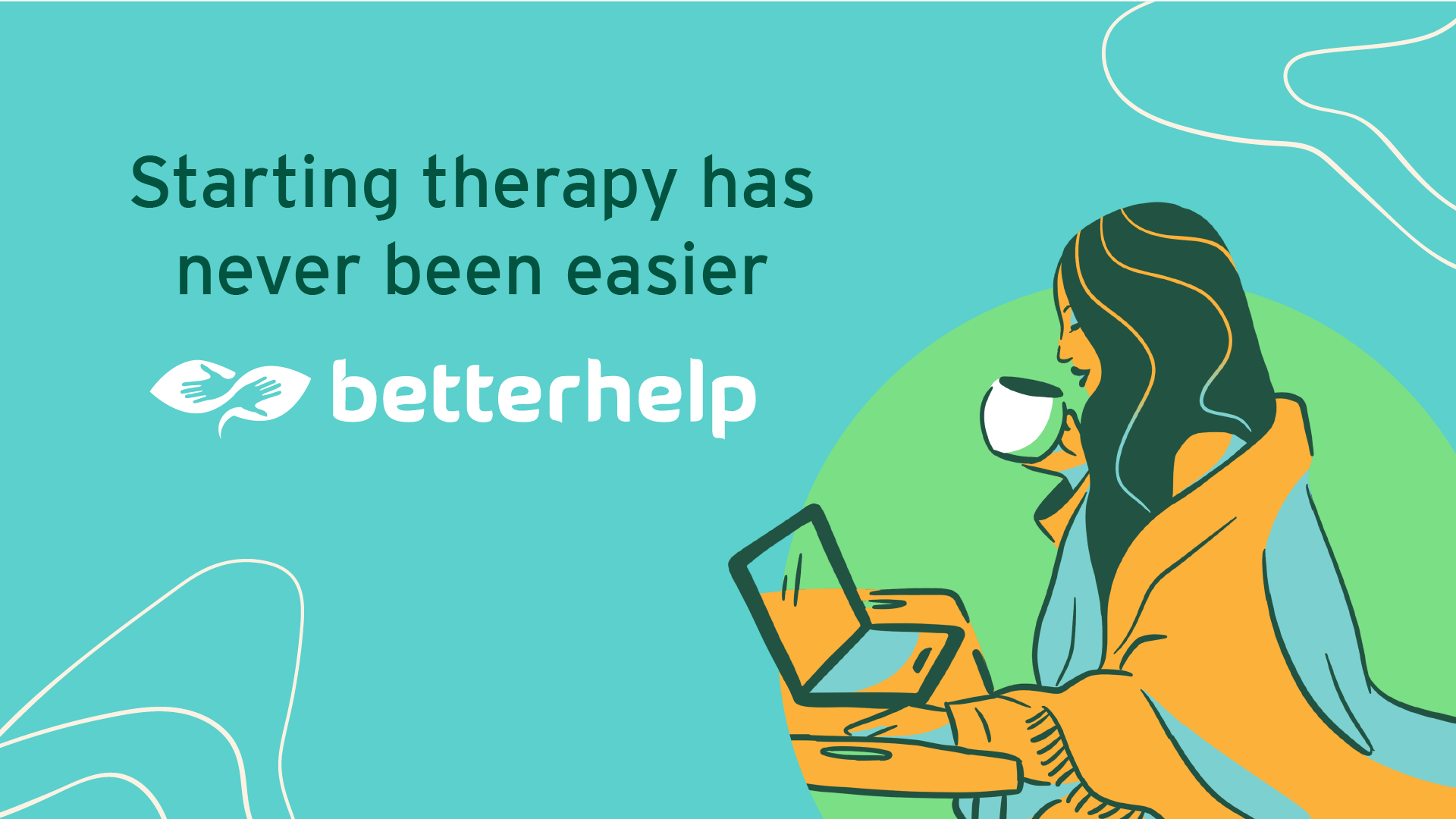As a BetterHelp affiliate, we receive compensation from BetterHelp if you purchase products or services through the links provided
Narcissism is a complex mental health condition that can devastate those affected. But do narcissists know they are narcissists? It’s an interesting question and one worth exploring in more detail. Do people who exhibit narcissistic behavior understand the extent of their actions, or are they unaware of how their words and behaviors impact others around them? In this blog post, we’ll take a closer look at what exactly constitutes Narcissism, common signs to be aware of, whether narcissists know they’re exhibiting narcissistic traits – plus advice for coping with someone displaying these tendencies and treatment options available. Let’s dive into the topic: do narcissists know they are narcissists?
Table of Contents:
What is Narcissism?
Narcissism is a personality disorder characterized by an inflated sense of self-importance, a need for admiration and attention, and a lack of empathy for others. People with this condition often have grandiose ideas about themselves and their abilities, believing they are superior to those around them. They may also be preoccupied with fantasies of success or power.
At the same time, narcissists can be extremely sensitive to criticism or failure. They may react angrily when their expectations aren’t met or when someone challenges them in any way. This combination of arrogance and insecurity can make it difficult for people with narcissistic traits to form meaningful relationships with others.
The cause of narcissism is unknown, but it is believed that genetics, environment, upbringing, trauma, and other factors play a role in its development. It is more common among men than women and typically begins in adolescence or early adulthood as individuals strive to establish their identity during these formative years.
People who display narcissistic behavior tend to think highly of themselves while simultaneously devaluing those around them; they are often manipulative and exploitative to get what they want from others without considering the consequences on those affected. Narcissists also tend to have an exaggerated sense of entitlement, leading them to expect special treatment from everyone else regardless of whether it is warranted. This expectation usually results in disappointment when reality does not match what was expected, leading some narcissists into depression due to feeling let down by life itself rather than taking responsibility for their unrealistic expectations.
Narcissism is a complex personality disorder that can affect one’s mental health. By understanding the signs of narcissism, we can better identify and address it in ourselves or others.
Signs of Narcissism
It can be challenging to recognize the signs of narcissism in someone you know or love because they often appear charming and confident. However, it’s essential to understand that these traits mask more profound issues.
One common sign of narcissism is an excessive need for admiration from others. Narcissists will seek attention and praise from those around them, even if it means manipulating people or situations to get what they want. They may also become jealous quickly when others receive recognition or attention instead of them.
Another sign is a lack of empathy toward others’ feelings and experiences. A narcissistic person may not care about how their words or actions affect other people; they only care about themselves and getting what they want regardless of who gets hurt in the process. This lack of concern can make relationships with narcissistic people difficult as it becomes hard to trust them due to their disregard for your feelings and emotions.
Grandiosity is another crucial trait associated with narcissism; this includes exaggerating one’s accomplishments, talents, skills, wealth, etc., and having an inflated sense of importance over others, which leads them to feel superior all the time without any objective evidence backing up such claims. Grandiosity makes it easy for narcissistic people to manipulate those around them into believing whatever story they tell, no matter how far-fetched it might be, since most people find confidence attractive and tend not to fall victim more easily than expected.
Finally, some narcissistic individuals have difficulty accepting criticism; whether constructive or otherwise, any criticism tends to make them defensive, which results in arguments rather than healthy discussions. This inability to accept criticism often leads narcissistic persons into trouble since feedback helps us grow. Still, unfortunately, this isn’t something that applies when dealing with someone suffering from this disorder.
Signs of narcissism include an excessive need for admiration, a lack of empathy, and difficulty maintaining healthy relationships. These are vital signs of awareness when considering whether someone is a narcissist – but the next question is: do they know it?
Do Narcissists Know They Are Narcissists?
Narcissists often display arrogance, self-importance, and a lack of empathy. But do narcissists know they are narcissistic?
The answer to this question depends on the individual in question. Some narcissists may be aware of their selfish behavior but choose to ignore it or rationalize it away. Others may not even recognize that their behavior is out of the ordinary or inappropriate. It’s important to note that many people with narcissistic tendencies don’t meet the criteria for a complete diagnosis of Narcissistic Personality Disorder (NPD).
When looking at whether or not someone knows they are a narcissist, it can help to look at how they interact with others and how they handle criticism or feedback from those around them. A person who has difficulty accepting criticism may be more likely to have some level of awareness about their behaviors than someone who takes feedback well and adjusts accordingly.
Another factor in determining if someone knows they are a narcissist is how much insight into themselves they possess overall. People with greater levels of self-awareness tend to be better able to recognize when their actions might hurt other people or cause problems in relationships; however, those with lower levels of self-awareness may struggle with this concept entirely without realizing why there is an issue in the first place.
Ultimately, only the individual can determine if they recognize their narcissistic traits and behaviors—and whether they choose to address them. However, understanding what constitutes narcissistic behavior can help us all become more mindful about our interactions with others so we can create healthier relationships moving forward, regardless of whether or not we think we might have some degree of NPD.
Narcissism is a complex condition that can be difficult to identify, but understanding the signs and symptoms of narcissism can help people with mental health issues recognize when they may be affected. In the next section, we’ll explore how narcissism affects relationships.
The Impact of Narcissism on Relationships
Narcissism can have a devastating impact on relationships. Narcissists often lack empathy and may be unable to recognize the needs of their partners or family members. They may expect others to meet their own needs without considering how it affects those around them. This can lead to tension, resentment, and conflict in relationships.
In romantic relationships, narcissists are often controlling and demanding. They may become jealous if they feel their partner is not paying enough attention to them or giving them enough admiration. Narcissists also tend to devalue their partners by criticizing or belittling their accomplishments. This behavior can make it difficult for a relationship to thrive, as both parties will struggle with low self-esteem and feelings of worthlessness over time.
Family members of narcissists may find themselves constantly trying to please the narcissistic person to gain approval or avoid criticism. In some cases, this could mean sacrificing one’s wants and needs to keep the peace within the family unit, which could lead to resentment over time and emotional exhaustion from constantly putting someone else first at your own expense.
Friendships with narcissists can also be challenging because they typically require constant validation from those around them while providing little support in return when needed most. It’s common for friends dealing with a narcissistic individual to feel taken advantage of due to the one-sided nature of these types of friendships, where all energy goes into pleasing the other person. Still, none is returned when you need help.
Overall, it is essential for anyone dealing with a narcissistic individual to understand that there is no easy fix but rather an ongoing process that requires patience, understanding, and compassion towards oneself before extending any such qualities to another person.
The impact of narcissism on relationships can be damaging to the individual and their partner. Understanding how narcissistic behavior affects those involved is essential to learn how to cope with a narcissistic person.
Coping with a Narcissistic Person
Coping with a narcissistic person can be difficult and draining. It is important to remember that it is not your fault if someone in your life exhibits narcissistic traits, and there are strategies you can use to help manage the situation.
Set Boundaries:
Establishing boundaries with a narcissist is critical for protecting yourself from their manipulation tactics. Be clear about what behaviors you will not tolerate, such as name-calling or belittling comments, and stick to those boundaries no matter how hard they push back. If necessary, remove yourself from the situation until they have calmed down.
Don’t Take Things Personally:
Narcissists often try to make others feel small to boost their egos; they don’t let them succeed by taking their words personally. Remind yourself that this behavior has nothing to do with you—it’s about them trying to maintain control over the situation or relationship.
Focus on Your Own Needs:
When dealing with a narcissist, it’s easy to get caught up in trying to please them or make them happy—but at the end of the day, it’s important that you focus on meeting your own needs first and foremost. Make sure you’re taking care of yourself emotionally and physically to have enough energy left over for dealing with challenging people like this one.
Be Assertive but Respectful:
When communicating with a narcissist, stay firm yet respectful to get through without escalating things further than necessary (which could lead to an argument). This means using “I statement” rather than blaming language when expressing how something made you feel (e.g., “I felt disrespected when…” instead of “You always disrespect me.”).
It can be challenging to cope with a narcissistic person, but it is essential to remember that treatment options exist and is available for those who suffer from narcissism. Let’s now explore the different treatment options available.
Treatment Options for Narcissism
While there is no single cure for narcissism, various treatment options are available to those struggling with narcissistic tendencies.
Therapy:
Cognitive Behavioral Therapy (CBT) can help individuals learn how to recognize the thoughts and behaviors contributing to narcissistic behavior. CBT helps them identify these patterns to change them. Additionally, psychodynamic therapy may be beneficial as it encourages individuals to explore the root causes of their narcissism, such as childhood trauma or neglectful parenting styles.
Medication Management:
Medications like antidepressants or anti-anxiety medications may also be prescribed if needed to manage symptoms associated with narcissism, such as depression or anxiety. It’s important that any medication prescribed is monitored closely by a doctor to ensure safety and effectiveness over time.
Group Therapy:
Group therapy can provide support from peers who understand what you’re going through while guiding how best to cope with your condition from professionals trained in treating mental health issues related to narcissism. This type of setting allows individuals struggling with this disorder to grow within themselves and amongst other group members who share similar experiences and feelings about living with it.
Family counseling can help family members learn more about what it means when someone has narcissistic traits so they can better understand how to best support their loved one during difficult times without enabling further destructive behavior patterns often seen among those suffering from this disorder. It also provides an opportunity for families to heal together after experiencing hurtful words or actions due to the negative impact caused by someone’s narcissistic tendencies.
Treatment options for narcissism can be complex, but with the right approach and guidance, it is possible to progress in managing narcissistic tendencies. Moving on to self-care tips for those affected by narcissism, let’s explore how to take care of ourselves in these difficult situations.
Self-Care Tips for Those Affected by Narcissism
1. Prioritize Your Mental Health
It is essential to prioritize your mental health when dealing with a narcissist. Make sure you take time for yourself and practice self-care activities such as yoga, meditation, journaling, or talking to a therapist about how you feel. It can be challenging to stay positive when faced with narcissistic behavior, but you must make an effort to look after yourself first and foremost.
2. Set Boundaries
Setting boundaries is critical when dealing with someone who exhibits narcissistic traits. They must understand what behaviors are acceptable and unacceptable in the relationship so that both parties feel respected and heard. This may mean saying “no” more often than usual or setting limits on how much time you spend together if necessary – whatever works best for the situation.
3. Take Time Away From The Narcissist
Taking some time away from the narcissist can help provide perspective on the situation and allow you to process any emotions that their behavior has stirred up without judgment or criticism from them. This could involve taking a few days off work, going on vacation or simply spending some quality alone time at home – whatever helps create distance between yourself and the person in question will do wonders for your mental well-being.
4 . Seek Professional Help If Needed
If things become too overwhelming, then seeking professional help might be beneficial to gain insight into why this person behaves as they do, learn coping strategies for managing their behavior better, and find ways of improving communication within the relationship (if applicable). A qualified counselor or psychotherapist can provide guidance explicitly tailored to your individual needs, which could prove invaluable during this challenging period of your life.
True Narcissists Aren’t Who You Think They Are
Narcissism is a personality disorder that can cause significant distress and dysfunction in relationships. It’s characterized by an inflated sense of self-importance, entitlement, lack of empathy for others, and a need for admiration from others. While labeling someone as a narcissist based on their behavior or attitude may be easy, it’s important to remember that true narcissists are much more than just annoying people with bad habits.
The Diagnostic and Statistical Manual of Mental Disorders (DSM) outlines the criteria for diagnosing narcissistic personality disorder (NPD). To receive this diagnosis, individuals must meet five out of nine criteria, including having an exaggerated sense of self-importance; preoccupation with fantasies about success; belief they are special or unique; the need for excessive admiration; feeling entitled to special treatment; taking advantage of others without guilt or remorse; lack of empathy towards other people’s feelings; envy towards those who have what they don’t have; and arrogance in their behaviors or attitudes.
People with NPD often display manipulative behavior such as gaslighting — manipulating another person into doubting their reality — lying about facts or events to gain control over the situation, and using charm and offensive tactics like flattery to get what they want from someone else. They also tend to blame everyone but themselves when things go wrong and expect preferential treatment from friends, family members, colleagues at work, etc., even if there is no logical reason why they should be treated differently than anyone else.
It’s important not to confuse difficult personalities with true narcissism because while both can cause damage within relationships, only one requires professional help for recovery. Suppose you think you know someone who might suffer from NPD. In that case, you should encourage them to seek help through therapy so that they can learn how to manage their emotions better instead of lashing out at those around them due to unresolved issues stemming from childhood trauma which could be causing these negative behaviors.
FAQs
Do narcissists ever realize they are narcissists?
Narcissists may not always recognize their narcissistic behavior. This is because they are often unaware of how their actions and words affect others, and they lack insight into the impact of their behavior on themselves and those around them. However, some narcissists can eventually become aware of their condition through therapy or self-reflection. With proper help, a narcissist can learn to identify and manage symptoms to improve relationships with others.
Are narcissists aware of what they’re doing?
Narcissists may be aware of their behavior, but they often cannot recognize its impact on others. They tend to lack empathy and can be self-absorbed, making it difficult to understand how their actions affect those around them. This can lead to a disconnect between what they think is acceptable behavior and what is. Ultimately, narcissists may not always be aware of the full extent of their behaviors or the consequences that come with them.
What happens when a narcissist knows you know they are a narcissist?
When a narcissist knows you know they are a narcissist, they may become defensive and attempt to discredit or invalidate your opinion. They may also try to manipulate the situation to maintain control. It is essential for those who have identified as narcissistic individuals in their life to set boundaries and remain firm in their convictions so that the narcissist does not take advantage of them. Additionally, it can be beneficial for those affected by this type of person to seek professional help such as therapy or counseling to gain insight into how best to handle these situations.
Does a narcissist know they are hurting you?
No, a narcissist may not be aware that they are hurting you. Narcissists often have an inflated sense of self-importance and lack empathy for others. This can lead to them behaving in ways that hurt those around them without realizing it. They may also fail to recognize their behavior’s impact on others or not care about it. It is important to remember that this does not excuse their actions but rather highlights the need for better understanding and support from those close to them.
Conclusion
It is important to remember that not all people who display narcissistic traits are necessarily narcissists. However, it can be challenging to determine if someone knows they are a narcissist or not. Ultimately, do narcissists know they are narcissists? The answer is complicated and varies from person to person. It is essential for those affected by narcissistic behavior to seek professional help to learn how best to cope with the situation and find ways of managing their mental health. With the right support and treatment, individuals can gain insight into their behaviors and take steps toward healing from any trauma caused by a selfish individual.
Are you struggling with the effects of narcissism? If so, Rest Equation is here to help. Our online therapy services provide personalized support and advice tailored specifically to your needs. We understand how difficult it can be living with a narcissistic personality disorder. Still, we are committed to helping you gain insight into yourself and learn effective strategies for managing the symptoms associated with this condition. Reach out today – let us show you that there is hope in finding balance and peace within yourself again!
- Stress Management: What is the Relationship Between Stress and Addiction? - June 28, 2024
- Exploring Techniques to Maintain a Healthy Lifestyle without Drugs - May 28, 2024
- How Acupuncture Helps Treat Chronic Fatigue Syndrome - May 28, 2024
This site contains affiliate links to products. We will receive a commission for purchases made through these links.







